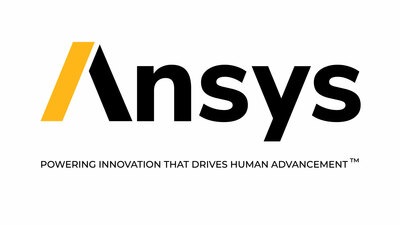Sustainability is a key global business priority driven by regulatory pressures, consumer demand, and climate change. However, lack of robust data on material usage, power consumption, waste, and emission generation often prevents companies from embracing large-scale sustainability initiatives. Ansys simulation enables businesses across industries to respond to these market challenges with agility and can help support sustainability efforts.
For instance, after identifying an ideal design, customers can further optimize it to meet their specific sustainability goals, such as reducing waste generation, improving energy efficiency, and lowering the overall carbon footprint. Ansys simulation helps companies predict return on investment for sustainability initiatives through virtual prototyping, process optimization, and high-fidelity results via four sustainability-focused solutions pillars:
- Clean environment encompasses simulation solutions for emission tracing and control; carbon capture, utilization, and storage; water treatment and management; environmental noise, dust, and orbital space debris.
- Materials and circularity include materials management and selection, packaging, light-weighting, chemical safety, compliance and traceability, recycling, and reuse.
- Energy solutions center on simulation solutions for wind, solar, hydrogen, nuclear, and other alternative energy sources; integrated energy systems; energy storage solutions; electric motors; fast-charging batteries, and fuel cells.
- Manufacturing and operational efficiency includes advanced manufacturing, digital twins, prognostic health management, energy consumption efficiency, reliability and durability, workflow optimization, process automation, and safety.
In addition, the report outlines a four-step methodology to clearly identify how simulation positively impacts sustainability efforts: 1) Identify and prioritize key metrics; 2) Evaluate and rank initiatives; 3) Assess simulation's contributions, and 4) Quantify and aggregate impact.
For example, Danfoss Drives, a global leader in energy-efficient solutions, used Ansys simulation to optimize its latest generation drive controller — used in various applications to manage the speed, torque, and power of electric motors. Using the Ansys methodology, Danfoss Drives determined simulation helped make the drive more efficient, contributing to a reduction in lifetime energy consumption of up to 45% compared to the previous generation — double what could have been achieved without simulation.
"Ansys simulation is key to helping us reach our sustainability goals and drive our business model of providing our customers with the most energy-efficient solutions," said Michael Laursen, head of virtual design, test & optimization at Danfoss Drives. "With simulation, we can improve our product design processes by enabling rapid, thorough analysis, faster decision-making, and emissions estimates. The data we capture is critical to shaping our current processes, helps us identify opportunities for cost savings, and ultimately opens the door to technological advancement and innovation."
The methodology also helped Infineon, a global leader in semiconductor and system solutions, measure the total electrical losses of an electric vehicle inverter design. Using simulation, Infineon cut the total electrical losses by 50%, reducing downstream emissions by 2-3% per vehicle. Moreover, Mars, a leader in snacking, food, and pet care products and services is using Ansys simulation to redesign more than 12,000 packaging types across its portfolio and has reduced plastic use by 246 tons in 2024.
"Advanced simulation technologies can play a pivotal role in helping companies meet their global emissions targets," said Jan Paul Stein, Partner at McKinsey. "The four-step methodology laid out in this report clearly shows how to identify the most relevant opportunities to leverage simulation for driving sustainability in engineering and product design and also quantify their impact. This is critical for achieving an even larger contribution to sustainability targets from using simulation tools."
"The Ansys suite offers a range of solutions to evaluate environmental impact at every stage of product development for any type of application or industry," said Prith Banerjee, chief technology officer and executive sponsor of Ansys' sustainability programs. "Addressing climate change and reducing global emissions depends on how fast we act. Ansys' leading solutions empower customers to develop innovative and sustainable products more efficiently and in significantly less time, ensuring compliance with current regulatory standards and preparing companies for future regulations."
To learn more about the Ansys methodology for using simulation to drive sustainability, read the full report and visit Ansys during CES 2025 at the Las Vegas Convention Center, West Hall, Booth #6400.
/ About Ansys
Our Mission: Powering Innovation that Drives Human Advancement™
When visionary companies need to know how their world-changing ideas will perform, they close the gap between design and reality with Ansys simulation. For more than 50 years, Ansys software has enabled innovators across industries to push boundaries by using the predictive power of simulation. From sustainable transportation to advanced semiconductors, from satellite systems to life-saving medical devices, the next great leaps in human advancement will be powered by Ansys.
Ansys and any and all ANSYS, Inc. brand, product, service and feature names, logos and slogans are registered trademarks or trademarks of ANSYS, Inc. or its subsidiaries in the United States or other countries. All other brand, product, service and feature names or trademarks are the property of their respective owners.
ANSS–T
/ Contacts
Media | Mary Kate Joyce |
|
| 724.820.4368 |
|
| |
Investors | Kelsey DeBriyn |
|
| 724.820.3927 |
|
|
![]() View original content to download multimedia:
https://www.prnewswire.com/news-releases/ansys-report-highlights-simulations-role-in-improving-sustainability-across-industries-302333054.html
View original content to download multimedia:
https://www.prnewswire.com/news-releases/ansys-report-highlights-simulations-role-in-improving-sustainability-across-industries-302333054.html










